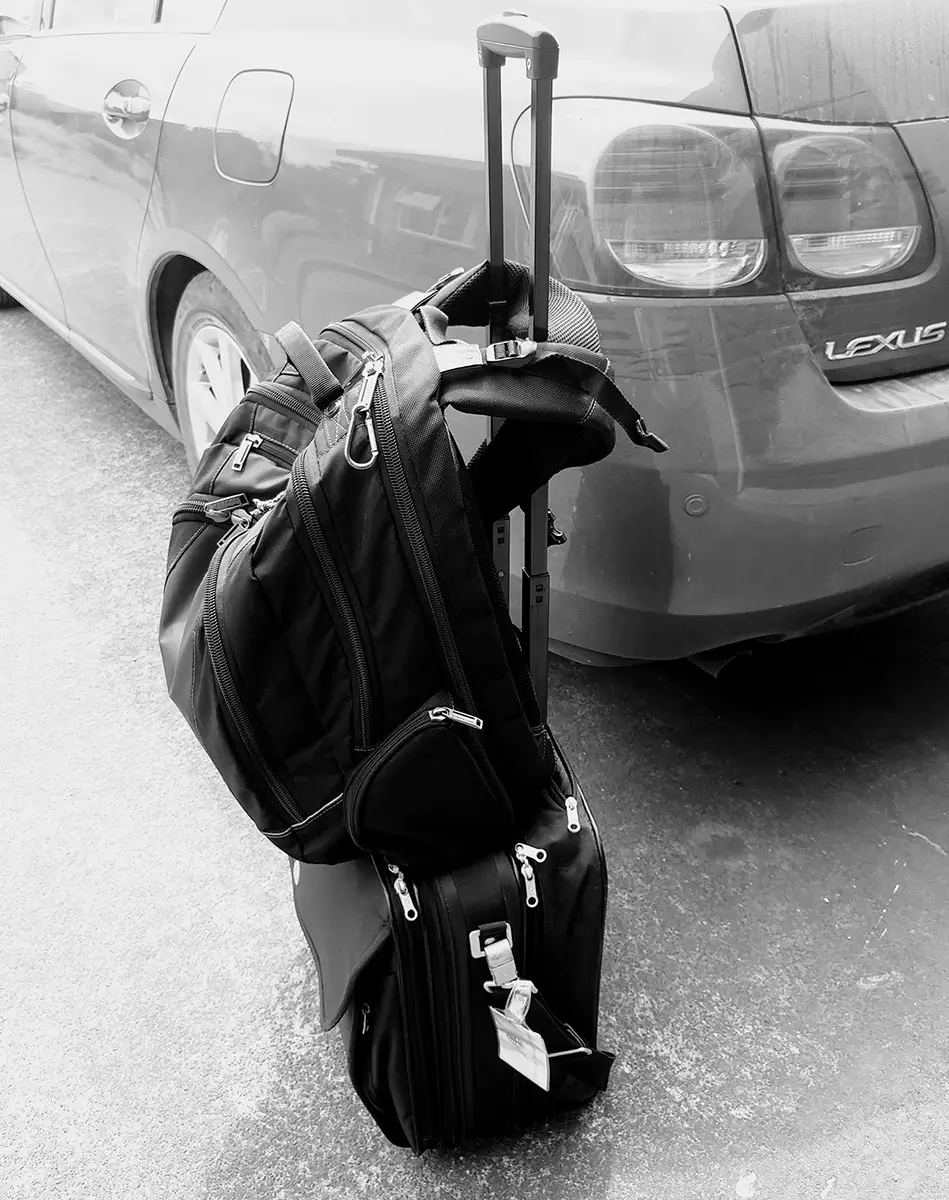I am sitting at the airport waiting for a delayed cross-country flight to deliver a leadership course to a group of police officers tomorrow.
Luckily, my pre-travel checklist means that, while I am parted from my luggage, I am still able to work. If needs be, I can still deliver tomorrow’s training with what I have in my carry-on bag. Most of what I will need will be in the training room when I arrive tomorrow morning. While I have a change of clothes and personal items in my overnight bag, I always have essentials and necessities in my laptop rucksack. These include:
- Hard & soft copies of the run sheet, facilitator and participant workbooks;
- All supporting materials, clients contacts and travels documents;
- My trusty bag of assorted AV adaptors, cables and dongles;
- Mini-wash kit and spare underwear – in case of delays or lost luggage.
Just as importantly, when travelling with only carry-on bags I need to ensure I leave certain things behind. These include all non-essential notebooks & materials, portable backup hard drives and my trusty Swiss Army knife (as forgetting and having them confiscated has become an expensive mistake).
To help me remember what I need to take and leave behind, I use a checklist but, as a professional who knows his business and tried and trusted travel routine, should I really need one? In his book, The Checklist Manifesto: How to Get Things Right, surgeon Atul Gawande explored the value of checklists in a number of professions and repeatedly found that they can be an effective answer for forgetfulness, complexity and unforeseen changes.
In the operating room, Gawande and his team use a two-minute checklist to prepare for surgery – ensuring swift access to the right medicines, blood and plasma – as well as some key essentials for effective collaboration – making sure that, behind the masks, the assembled team know each other by name. Incredibly, in a measured study in eight different hospitals, simple pre-surgery team introductions delivered a 35% decline in deaths and complications in surgery.
While 80% of the surgeons involved said they would continue to use Gawnade’s checklist, the other 20% remained said the checklists didn’t add value and wasted time. However, when asked if they would want a surgeon to use the checklist if they were the patient, 94% of those resisters said they would!
Creating checklists for routine processes and procedures makes sense. They allow us to act swiftly and confidently. Creating checklists for complex situations – like performing brain surgery or flying a plane – can make a crucial difference since these are the times when we are most uncertain about how to proceed and lack the capacity to assess and decide. In these cases, checklists can help establish facts, eliminate concerns and provide clarity.
Gawande thinks many professionals are resistant to using checklists because professionals and experts have a hard time admitting their own fallibility – let me know what do you think.
[Note: posted after the flight, as my flight was called while writing!]
